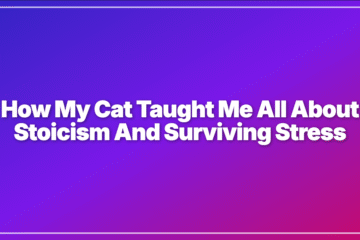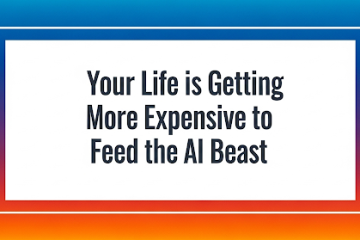There is a quiet, tectonic shift happening in the world of work, a tremor just beneath the surface that many of us in our fifties are beginning to feel. It isn’t a sudden earthquake, but a slow, grinding pressure.
The ground we’ve stood on for thirty years, the reliable bedrock of experience, loyalty, and deep institutional knowledge is becoming unstable. We are being unceremoniously ushered towards an exit we did not choose, caught in a perfect storm of ageism, automation, and the relentless, short-term logic of the spreadsheet.
This is not a retirement of gold watches and celebratory farewells. This is a forced obsolescence. Think of the master hawker, the one who has spent a lifetime understanding the subtle alchemy of “wok hei,” that elusive, smoky essence that cannot be quantified. He doesn’t measure; he feels. His deep knowledge is a form of artistry.
Now, the modern corporation, in its quest for quarterly gains, prefers the certainty of a Thermomix—efficient, predictable, and operable by anyone who can read a screen. A deep resume is no longer seen as an asset but as a liability on the balance sheet.
We are competing with a generation of digital natives who are younger, cheaper, and more fluent in the language of tomorrow. And we are competing with the ghost in the machine: the algorithm that can replicate the science of our jobs, even if it can never grasp the art.
To be fifty in this climate is to feel like a craftsman in an age of mass production, valued one day and archaic the next.
My first reaction, and I suspect I am not alone in this, was to fight. To brace against the tide. It was a battle waged on multiple fronts: against the sting of irrelevance, against the fear of an uncertain financial future, and against the quiet rage of being deemed surplus. But fighting this force is like being a seasoned black belt trying to submit the howling wind and raging water. You exhaust yourself grappling with something that has no limbs to break, no neck to choke. The market is not an opponent you can outmanoeuvre; it is a climate you must endure.
You cannot pin a storm.
The realization that my old methods of control were failing led me not to despair, but to a different kind of discipline, one forged not in struggle, but in acceptance. It required a profound internal shift, a turning away from the external battle I was losing and toward the internal world I had neglected. It was a pivot from trying to impose my will on the world to focusing on the one thing I could truly command: my own response. This reorientation led me straight to the heart of ancient Stoic wisdom: the Dichotomy of Control.
Our peace and our power lie in distinguishing what we can influence from what we cannot. And the list of things we cannot influence is humbling. I cannot control the global economy, reverse the march of AI, or make a hiring manager twenty years my junior see the deep value in my experience. These are the waves of the storm, and to try and stop them is to invite madness.
What I can control, however, is a vast and powerful kingdom. I can control the trim of my sails, the course of my rudder, and the condition of my ship.
My ship is the Enterprise of Me.
I am its captain.
To take the helm of this vessel is to see this transition not as an ending, but as an unscheduled liberation.
The first order of business is a full systems check. I can meticulously manage my finances, cutting the fat and becoming ruthlessly efficient in a way a large corporation never could. I can govern my health, recognising that my body is the most critical asset I have.
I can command my time, reallocating the fifty hours a week I gave to an employer back to myself. Think of that: an entire work week, every week, gifted back to you. That is the time to learn a new skill, to launch that small venture you’ve always dreamed of, to mentor someone, to simply be truly present with your family.
I chose family, getting a diploma, getting fit, and starting yet another business venture.
Most importantly, I can redefine the mission.
Success is no longer a title on a business card or LinkedIn profile, but the quiet satisfaction of a life well-lived on my own terms.
We are not victims of this shift unless we choose to be. The storm is real, but our ships were built over decades of navigating complex challenges.
We are not fragile yachts; we are seasoned vessels, perhaps with a few dents in the hull, but with a wisdom of the currents that no new ship can boast. By letting go of the un-winnable war against the weather and focusing instead on mastering our own vessel, we don’t just survive the storm. We learn to sail in a direction we finally get to choose.
The spreadsheet may have declared us redundant, but our spirit can declare us free. Stay strong.



0 Comments